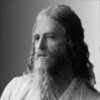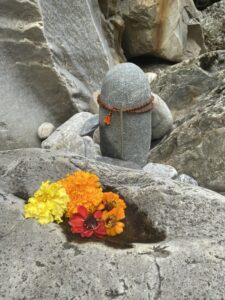Someone said something interesting to me the other day. She said she wasn’t interested in yoga because it is too “eastern.” Certainly, she should be respected for her opinion and orientation. At the same time, however, it is obvious she doesn’t understand the scientific nature of spirituality.
From a practical point of view, yoga, which means “union,” may be understood as a verb. Yoga is a series of practices whereby one purifies his body, emotions, and thoughts in order to realize or have union with, his true nature, the Self. While the yoga practices we are familiar with originated with the great sages of India several millennium age, yoga is no more eastern because it came from India than the Law of Relativity is Jewish because it was formulated by Albert Einstein.
Imagine you are learning to be an airplane mechanic. If the airline sends you to South America for training, your boss might tell you to report to work in a t-shirt and to bring along a thermos of cold lemonade. He might also tell you to be sure to check the cooling units on the plane because they have a tendency to overheat. If you were learning the same trade in Siberia, you might be told to wear long johns to work and bring along some hot coffee. Your boss might warn you to be alert to the heating mechanisms in the plane because the engine can get too cold to operate properly.
The principles and operation of getting the plane in the air safely have nothing to do with culture or personality. The differences in approach are rational, having to deal with practical considerations. The science of aerodynamics has nothing to do with whether the plane was built in South America or Russia.
We in America have a wonderful outlook whereby we believe that anything wrong can be corrected. Hopefully, this will lead us to resolve our political and social problems (or at least get the airlines to run on schedule). A difficulty arises, however, when we arrogantly assume that if we don’t like something, our opinion is conclusive evidence that it needs to change. This approach is not going to work when we wish to learn spiritual science.
Spirituality is as precise as mathematics. Our opinions, likes, and dislikes, do not alter its laws. A great Zen teacher said that spiritual discipline is the thing that people most avoid. But, he said, it is the ultimate refuge of everyone when they get tired of suffering. When we see that all our self-created plans, ideas, and concepts fail to bring us peace, then we turn to those teachings which are greater than ourselves.
It amazes me how much resistance we have in this country to learning spirituality from a teacher. In every other endeavor, we seem to understand the need for a teacher or mentor, but when it comes to spirituality we seem to think it is a “do it yourself” job. While it is true, as Ramana Maharshi put it, “God, Guru, and Self are One,” there are very few capable of this realization without instruction and guidance. If you think you have the intelligence, courage, inspiration, determination, and wisdom to succeed on the spiritual path without a teacher, well, you might consider your attitude is definite proof of your need! In addition, I think it a beautiful phenomenon that Nature has so arranged things that students need teachers. In this way, an extraordinarily sweet and powerful relationship can be formed: a relationship that can lead the student to appreciate God within and without.
Rather than forming biased opinions of what we don’t understand, rather than seeking to change systems of practice that have proven their success over centuries, let us instead try to be humble and admit that we don’t know everything. If we are not ready to submit to the self-introspection and discipline required of spirituality, so be it. Let us at least be honest enough to say that our interests lay elsewhere. But let us not fool ourselves into thinking that we are some special exemption to the rules which have guided great aspirants in every place and time throughout history.




